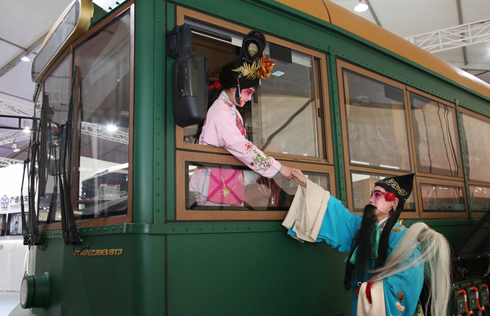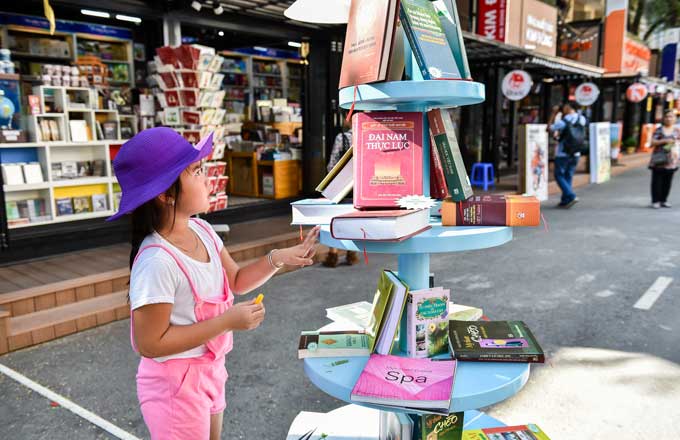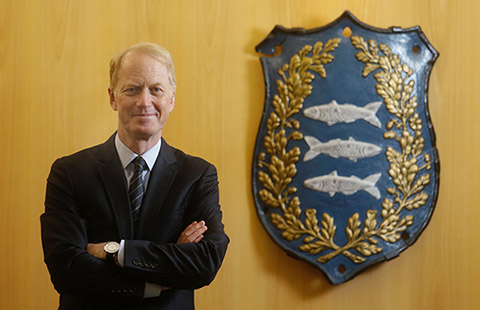Resorting to happiness talk
Gino Andreetta helps Club Med to ride China's consumption boom, expand faster than elsewhere
Gino Andreetta, appointed CEO of Club Med Greater China in 2015, finds his latest role no different from a job in his home country Italy.
"China is the Italy of Asia. It's the Mediterranean-like part of Asia," Andreetta said at his Shanghai office, the China headquarters of the French resort major.
"There are many similarities in culture between Chinese and the Mediterranean where Club Med is from. They include placing importance on family, food, and the carpe diem attitude. We don't have to specially cater our offerings to China-you can say this concept was made for the Chinese," said Andreetta.
Founded in 1950 in France, Club Med is best known for its all-inclusive holiday packages, a business that enables guests to eat, drink and play to their heart's content without ever having to leave the self-sufficient resorts.
Club Med has more than 70 such resorts in over 25 countries. The resort operator has more than 12,000 GOs or gentils organisateurs (or gracious organizers) from 25 countries. Ten percent of its GOs are from China.
Unlike regular hotel staff, GOs wine and dine with guests throughout the day and are an integral part of the holiday experience.
The first Club Med resort in China opened in December 2010. The number of Chinese guests has been growing by up to 30 percent year-on-year. In November 2016, Club Med opened its fifth resort in Northeast China's Jilin province.
Located at Beidahu, a rather obscure ski destination known for its rime ice crystals, the resort has been an instant hit since the opening, with all of its 176 rooms fully booked till the third week of February. The resort has also been ranked the No.1 hotel in Jilin province on travel website Tripadvisor.
"The ski resort concept is something very new in China. But the success we have achieved means there is huge demand here and proves that our unique resort concept is very welcomed," said Andreetta, who has worked at Club Med resorts across more than 20 countries over the past two decades.
The customer return rate at Club Med resorts in China is evidence of its popularity. Andreetta said 20 percent of its guests have stayed at the resort before.
Club Med is looking to open between 10 and 15 new resorts in China over the next four to five years. On an average, three to five new Club Med resorts open annually across the globe. Andreetta said the brand's rapid growth in China has enabled it to embark on such an ambitious expansion.
"The velocity of the Chinese market is astonishing. It took 20 to 30 years for French people to understand and have the culture of holiday making. It started in the 1950s after World War II and only became sophisticated in the 1970s. But in China, it may take less than five years," said Andreetta.
Statistics from China Union Pay, one of the biggest electronic payment service providers in the country, showed that expenditure for domestic travel, including flights, transportation, accommodation and shopping, during the first six days of the Spring Festival this year soared by 52 percent compared with last year. China Union Pay also found that high-end travel was the key growth-driver.
This, coupled with the fact that experiential travel has become increasingly popular in recent years, bodes well for the French resort brand, he said.
"A few years ago, people here in China were looking for the cheapest travel options. Today, it's really about value for money. Club Med is all about experience. It's not something special in the chandelier or carpet or bathtub that customers are paying for," said Andreetta.
Club Med China's main clientele is described as those aged between 25 and 40. Many of them have at least one child in the family and prefer spending more time in the common areas of the resort trying out new things.
In 2015, Shanghai conglomerate Fosun International finalized a takeover of Club Méd for $1.07 billion. Asked about the implications of the deal, Andreetta reiterated what Fosun's chairman Guo Guangchang once said: the deal was merely a "friendly takeover" that will not alter the essence of Club Med.
"If you buy something and become its owner, you may change it. But Fosun is investing in it. A sound investment is backed by the confidence that the product is good," said Andreetta.
The takeover has been classified as a "business of happiness", one of the three sectors that Fosun aims to invest in for the long term, besides health and wealth management.
"When Club Med was born in 1950 after World War II, the goal was to get people to rediscover the freedom and joy of doing things together. If I am to leave a legacy behind in China, I hope it has to do with gaining an understanding of not our products but the importance of being happy," said Andreetta.























